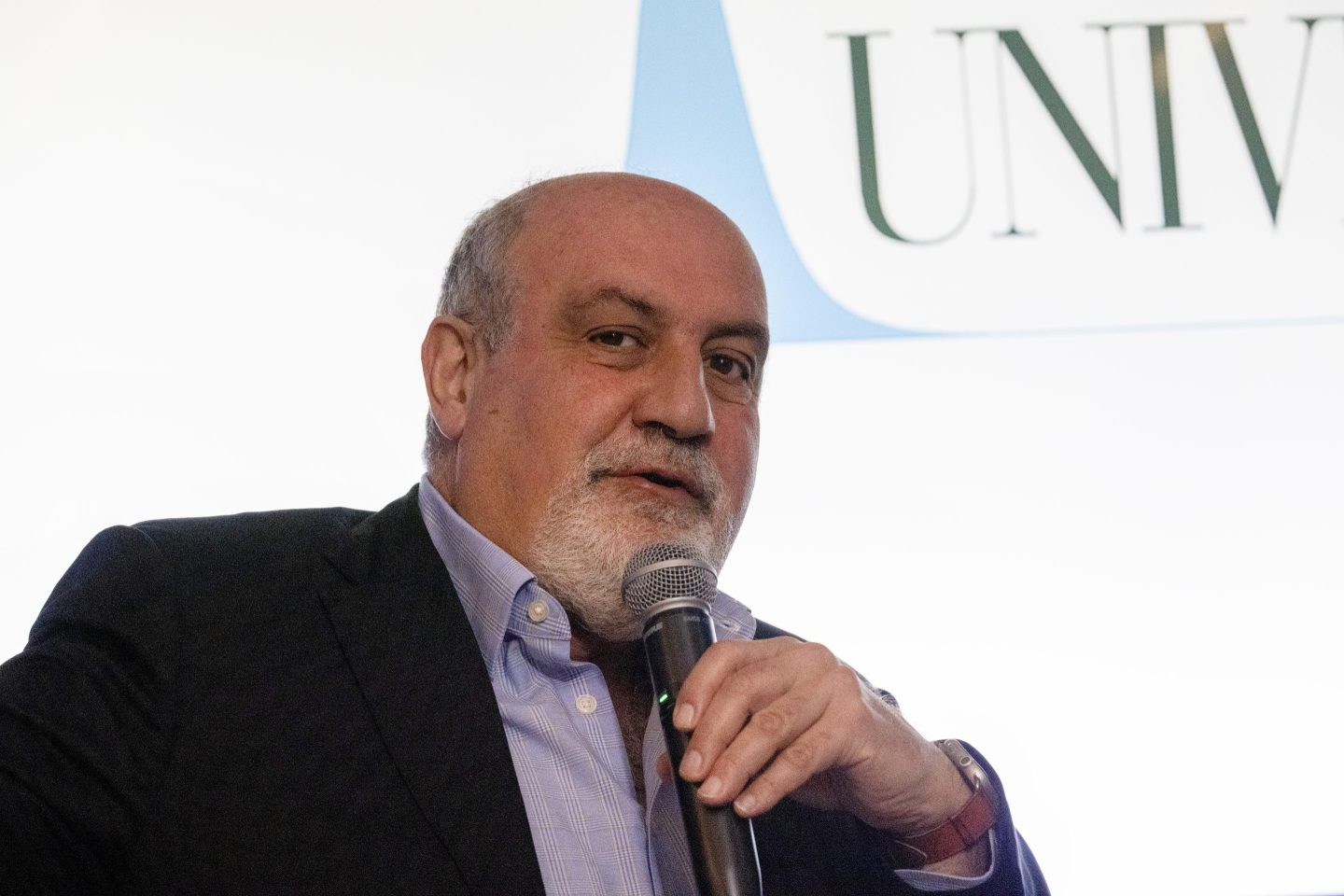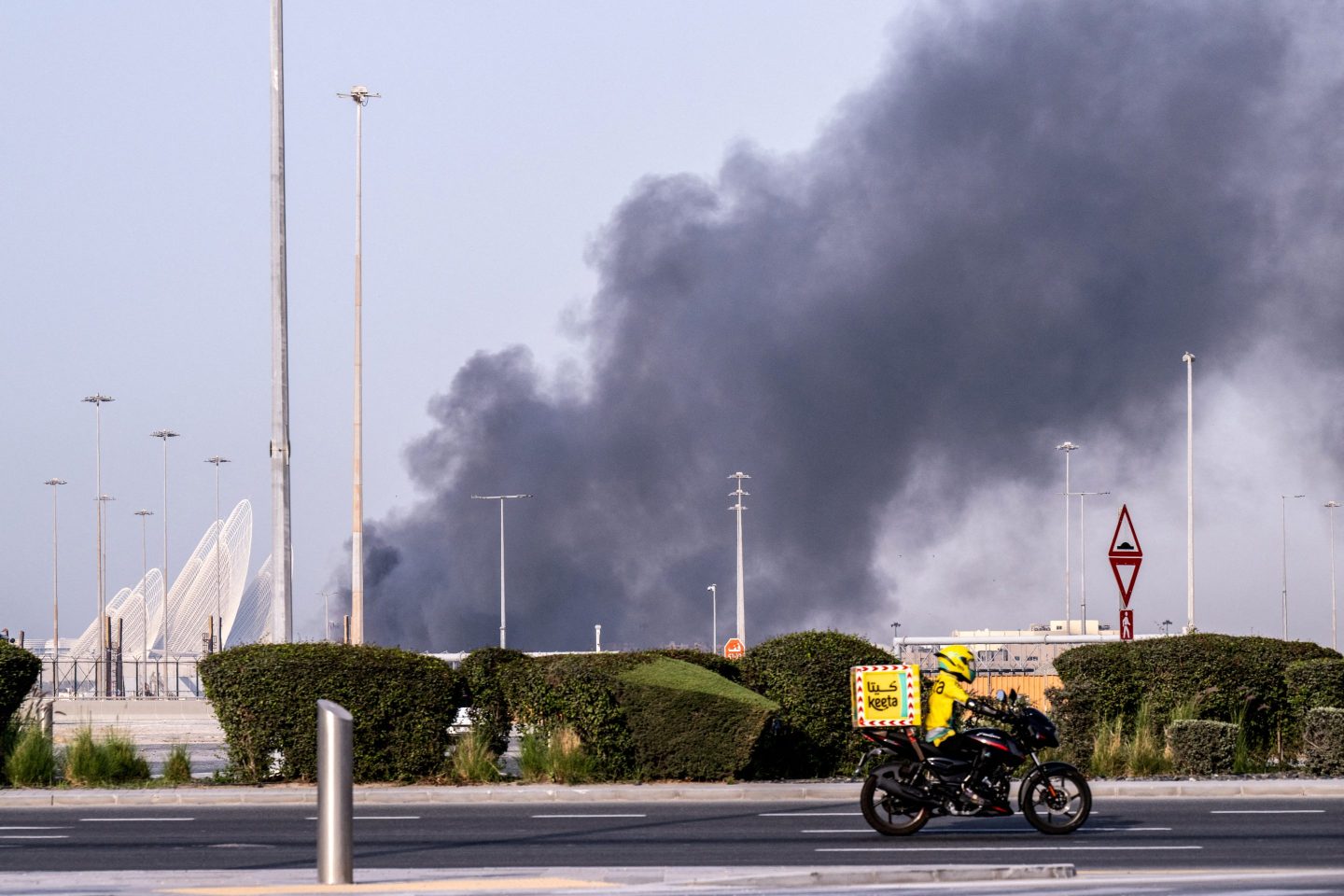Nassim Nicholas Taleb, the best-selling author acclaimed for his book “The Black Swan,” delivered a powerful critique of modern America’s economic malaise during the 2025 Annual Meeting of the Ron Paul Institute. In his address,he offered seven different thoughts on the modern state of macroeconomics and the world, arguing advanced economies like the U.S. are suffering from a curse of success.
Taleb argued well-intentioned “lifestyle improvements” like new bike lanes, while popular among city planners and politicians, reveal a deeper problem silently afflicting Western economies: the illusion of growth in societies that have reached their limits of prosperity. “Many are discovering,” he said, “that lifestyle improvements, such as bicycling paths and pedestrian- and cyclist-friendly cities, may not produce economic growth.”
The S-curve and stagnated growth
Taleb shot to fame in the Great Recession with his “black swan” theory of financial disasters, with falling house prices in that crisis being the thing that nobody expected to see. As profiled in the 2023 book “Chaos Kings,” Taleb and Mark Spitznagel began as “renegade traders” on Wall Street in the 1980s, driving explosive returns during disastrous market events. Both have developed reputations as pessimists over the years, but Spitznagel told Fortune in 2024 that he feels misunderstood, and he and Taleb often correctly call market rallies while bracing for disaster to come.
Taleb’s key message in his latest speech could be considered counterintuitive and unnerving for champions of urban progressivism: symbols of modernity—such as city bike lanes—are evidence of economic stagnation, not success.
Referencing his 2012 book Antifragile, in which he applied the idea of the “S-curve” from biology in an economic context, Taleb explained that most systems—including national economies—undergo an initial phase of rapid growth as needs are met and utility rises. Eventually, however, they hit a ceiling: once everyone owns a car, buys a home, and enjoys basic comforts, the returns on further investment slow dramatically. He said his research shows that in both biology and economics, “entities grow in a convex way, then slow as they saturate — growth may be unbounded, but remains sub-logarithmic.” For instance, you may grow your house to include a two-car garage, but that doesn’t mean you’ll necessarily graduate to a five-car garage. The incentive diminishes after a certain stage of growth and the curve takes on an S shape.
This is the situation in the world economy right now, Taleb argued. Rich countries like the U.S. and many in Europe are making “lifestyle improvements” like the aforementioned bike lane, tackling urban design to make more pedestrian-friendly cities, but that does not always equate to booming GDP. China, on the other hand, is still growing fast because “many still lack basics like a car.”
The U.S. and Europe, Taleb argued, have essentially “saturated” their capacities for meaningful growth, and the world economy’s problem right now is that saturated economies carry the most debt, and servicing that debt “is harder at the top of the S-curve.”
Why bike lanes can’t save the economy
The proliferation of new bike lanes, Taleb argued, is symptomatic of a political system that favors visible, immediate, and consumer-friendly projects. But such improvements, while visually appealing, do little to address core drivers of growth like industrial productivity, technological innovation, or exports. In fact, shifting resources from highly productive sectors to low-value improvements can depress overall GDP, he said, shifting to a critique of President Trump’s tariff regime.
Trump’s tariffs force resources into lower-margin activities, Taleb said, likening the policy to “asking a brain surgeon to do some gardening two days a week to avoid being ‘ripped off’ by professional gardeners.” He said growth is declining when it’s needed more than ever for debt service, and this is exacerbated by America’s “metastatic government and irresponsible fiscal policies.”
Taleb also noted this turn toward incremental upgrades coincides with rising debt obligations, meaning more and more public spending is earmarked for servicing loans rather than spurring future expansion. “Soon, most U.S. expenditure will go to servicing debt, and we lack the political mechanisms to correct this,” he warned. Taleb has been warning for years of a “death spiral” related to escalating government debt.
The economist shifted to a critique of modern dislike of immigration in S-curve economies. “There has never been a society that welcomed immigration for its own sake,” he said, arguing that after the West grew wealthy, it “ran out of people willing to clean bathrooms, fix roofs, babysit noisy spoiled brats, and mow lawns.” He argued that many youngsters in the middle class aren’t growing up with aspirations to become a janitor someday, “So the poor must be imported — reluctantly.”
He criticized the U.S. and Europe becoming “structurally addicted to cheap immigrant labor,” exacerbated by their penchant for building oversized houses that had large lawns, requiring intensive labor. He issued a final warning before moving on to other thoughts: “A sharp reduction in this supply would trigger hyperinflation, owing to the nonlinear effects of such squeezes. Remember 2022.” He predicted that, some “symbolic” immigration enforcement aside, nothing will change in order to preserve the status quo, including the primacy of anti-immigration politics. “We end up in the strange situation of xenophobic people importing labor for their own purposes while voting against immigration — a sort of tragedy of the commons.”
For this story, Fortune used generative AI to help with an initial draft. An editor verified the accuracy of the information before publishing.













